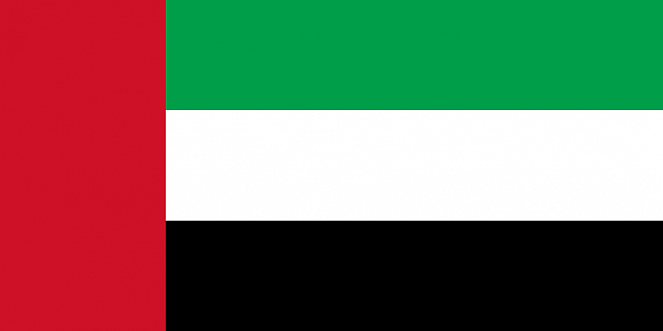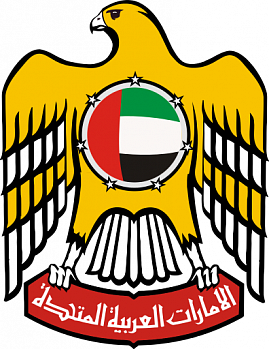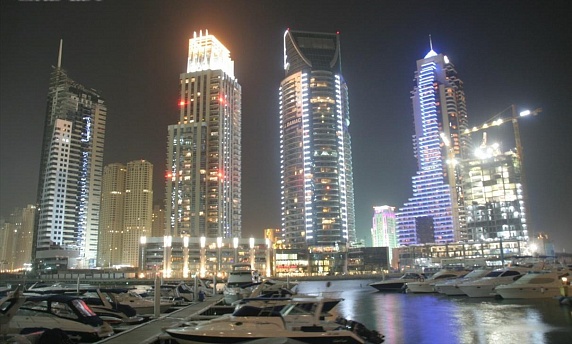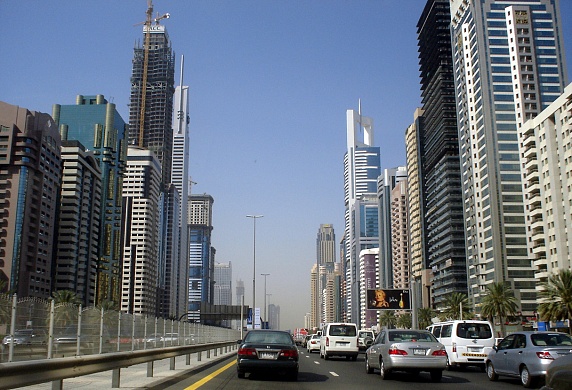 Émirats arabes unis
Émirats arabes unis
Foreign Minister Sergey Lavrov’s statement and answers to media questions at a joint news conference following the talks with Minister of Foreign Affairs and International Cooperation of the United Arab Emirates Abdullah bin Zayed Al Nahyan, Moscow, June 26, 2019
Ladies and gentlemen,
We have considered the entire range of topics in relations between the Russian Federation and the United Arab Emirates.
We praised the current level of interaction, which can be seen in the number of meetings at the high and highest levels and in the delegation exchanges between various ministries and departments. We have agreed to further increase cooperation under the Declaration of Strategic Partnership signed by our leaders in June 2018.
We focused on trade, economic and investment activities, as well as the promise of joint projects in various fields, and we emphasised the importance of further boosting the positive dynamics of increasing mutual trade.
We expect much from this year's upcoming regular session of the Russian-UAE Intergovernmental Commission on Trade, Economic and Technical Cooperation co-chaired by Sheikh Abdullah bin Zayed Al Nahyan and Russian Minister of Industry and Trade Denis Manturov.
We confirmed our commitment to strengthening the UAE's ties with Russia's regions, such as between Abu Dhabi and St Petersburg, expanding cultural and humanitarian links and tourism between both states. This is being promoted by the visa-free regime between our countries introduced in February. In September, Emir of Sharjah, Sultan bin Muhammad Al-Qasimi, will attend the Moscow International Book Fair, which will be an important cultural event for our countries.
As regards international issues, we primarily considered the problems in the Middle East and North Africa, with the persisting terrorist and extremist threats as well as arms trafficking. In this context, coordination of foreign policy between Russia and the UAE is highly relevant.
We share the opinion that a prompt resolution to the conflicts through political measures based on international law and with consideration for the interests of all parties involved would benefit each and every country in the region. Based on this, we discussed developments in Libya, Yemen and Syria, and paid particular attention to the Palestinian-Israeli settlement, which, as we are mutually convinced, should be based on the resolutions of the UNSC, the UN General Assembly, and the Arab Peace Initiative.
Of course, we spoke about the developments in the Persian Gulf area. We are interested in settling the situation. De-escalation should take place in this strategically important region and a positive and uniting agenda should be promoted to facilitate the elimination of any discord or conflict on the basis of dialogue. We have once again noted Russia's concept for collective security for the Arab states in the Persian Gulf and the Islamic republic of Iran with assistance from the international community, including the League of Arab States, the Organisation of Islamic Cooperation, and the UN Security Council permanent members. We are interested in discussing this issue and expect that together we will be able to reduce tensions and achieve a detente.
We are quite satisfied with the results of the talks. We have agreed to further support close contacts on a wide range of issues of mutual interest, with objectives set by our leaders during their regular meetings. I thank my colleague for a very productive meeting.
Question: In recent days, the US rhetoric towards Iran has become noticeably harsher. For instance, we hear US President Donald Trump say that “overwhelming force” may be used against Tehran. Sometimes these statements sound like direct threats. At the same time, we hear Iran say that the most recent American sanctions closed the “window of opportunity” for a diplomatic settlement of this conflict. Do you think that today there still is a chance to solve this crisis through negotiations? And if so, what steps should each side take?
Sergey Lavrov: I will answer the question about settling the crisis through negotiations very simply: negotiations are always an option if both sides are willing to conduct them with mutual respect, based on the principles of international law, diplomatic practice and decency. I do not see statements promising the onset of an age of prosperity in Iran from the very start of the negotiating process, followed by direct insults and humiliating sanctions, which have been escalating, namely, for the past two days, as favourable conditions. The Iranian side has already stated that in an environment like this, negotiations are out of the question, especially given how our American colleagues are urging Iran to start talks without any preconditions whatsoever, when 80 percent of Iran’s trade is subject to unlawful unilateral American sanctions, which are extraterritorial and designed to make everyone obey Washington’s will. What preconditions are there to speak of when the US imposed so many of these same preconditions on Iran that it is now evident that it is counting not on negotiations, but rather on Iran to give in and agree to every demand the US makes without any regard for the rules of international law whatsoever?
There are no such things as points of no return, even though some people would probably love to create them. We will continue trying to convince both our Iranian and American colleagues to step away from this danger line and start resolving their disagreements through a civilised dialogue that will put an end to the politics of ultimatums, sanctions and intimidation.
My colleague and friend and I mentioned that we discussed the Persian Gulf situation today. It seems to me that our idea to create a dialogue between the Arab states of the Persian Gulf and Iran could serve as an alternative to the disastrous path the warmongers are trying to push the region down. Dialogue always helps to resolve differences in a peaceful way; at least it provides a strong opportunity. I think that the Arab states of the Persian Gulf could also, in one way or another, advocate for dialogue rather than for pushing the region towards the line beyond which the use of force is a possibility. This would be disastrous for the Middle East, North Africa and many neighbouring regions. This would be an international crisis.
Question: Did yesterday’s meeting between the heads of the Russian and US security councils in Jerusalem help ease tensions in the relations between the two countries? Has any progress been made in the Syrian settlement process and in the preparations for the meeting between the presidents of Russia and the US in Osaka?
Sergey Lavrov: It is always useful, in any conditions, to meet face to face. It is clear that such a conversation in any format cannot solve all the problems, but I believe that the US is more aware that all the demands for Russia to change its independent policy, to surrender to the approaches unilaterally promoted by the US on the global stage that violate international law, are senseless and counterproductive. Here is an example: their behaviour towards the Joint Comprehensive Plan of Action (JCPOA) to resolve the Iranian nuclear issue. They did not just withdraw from the JCPOA, but in fact forbid everyone else from implementing the UN Security Council Resolution that approved this programme. The programme – the Plan of Action adopted by the UN Security Council – includes unblocking Iran’s economic ties with the rest of the world. This is a part of the decision made by the supreme body of the United Nations. Now the US as much as forbids countries from implementing this resolution.
Speaking about easing tensions, it is not us who creates them. It does not depend on us. I hope that a gradual recognition of the fact that all attempts to speak the language of sanctions to us are flawed is finally coming to the American political masses.
We are ready to discuss issues of common interest, and a dialogue can be based on equality and mutual respect, which is essentially what we have in our contacts with our American colleagues on the developments in Syria, in particular. We have a military channel, for deconflicting, or exchanging our substantive assessments of the situation. We agree – or at least the Americans say – that Syria’s territory must remain integral, and all countries must respect its sovereignty and independence. This is our ultimate goal, as Russian Security Council Secretary Nikolay Patrushev said yesterday following the meeting in Jerusalem.
Of course, we see different ways to achieve this goal. We are in favour of establishing an inclusive dialogue as soon as possible and of handing over the areas still controlled by illegal military groups to the Syrian government in full compliance with UN Security Council Resolution 2254.
The Americans are trying to preserve their presence and the presence of extremist groups they control in the areas on the Euphrates’s eastern bank. This does not help to implement the agreements we discuss.
Anyhow, the talks between the secretaries of the Russian and US security councils, their Israeli colleague and also Prime Minister of Israel Benjamin Netanyahu were useful in the sense that, as I hope, our colleagues made it clear to our partners that we would not support any attempts to move the entire Syrian discussion onto an anti-Iran track, simply because this approach to the problem is completely wrong and twisted. The problem is that an inclusive dialogue is necessary among the Syrians above all, like this resolution requires, with an unbending approach to what remains of the terrorist groups and, let me stress this once again, unconditional respect for the sovereignty and the territorial integrity of the Syrian Arab Republic.
Speaking about the meeting between the presidents of Russia and the US, no agenda has been agreed on. We heard the issues mentioned by representatives of the White House and the US Department of State. They are obvious to everyone. I think the presidents will decide what their priorities are and discuss everything directly. This is always useful. We will have more information to share following this meeting.








